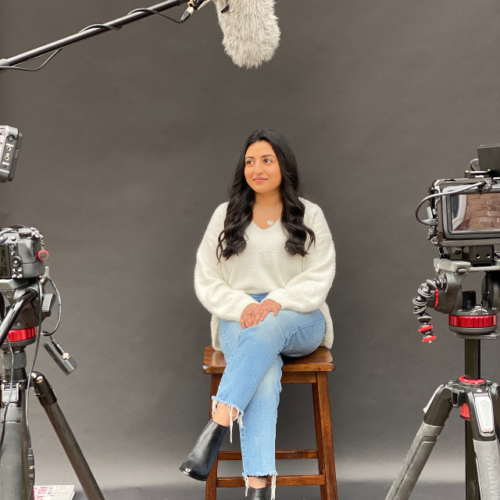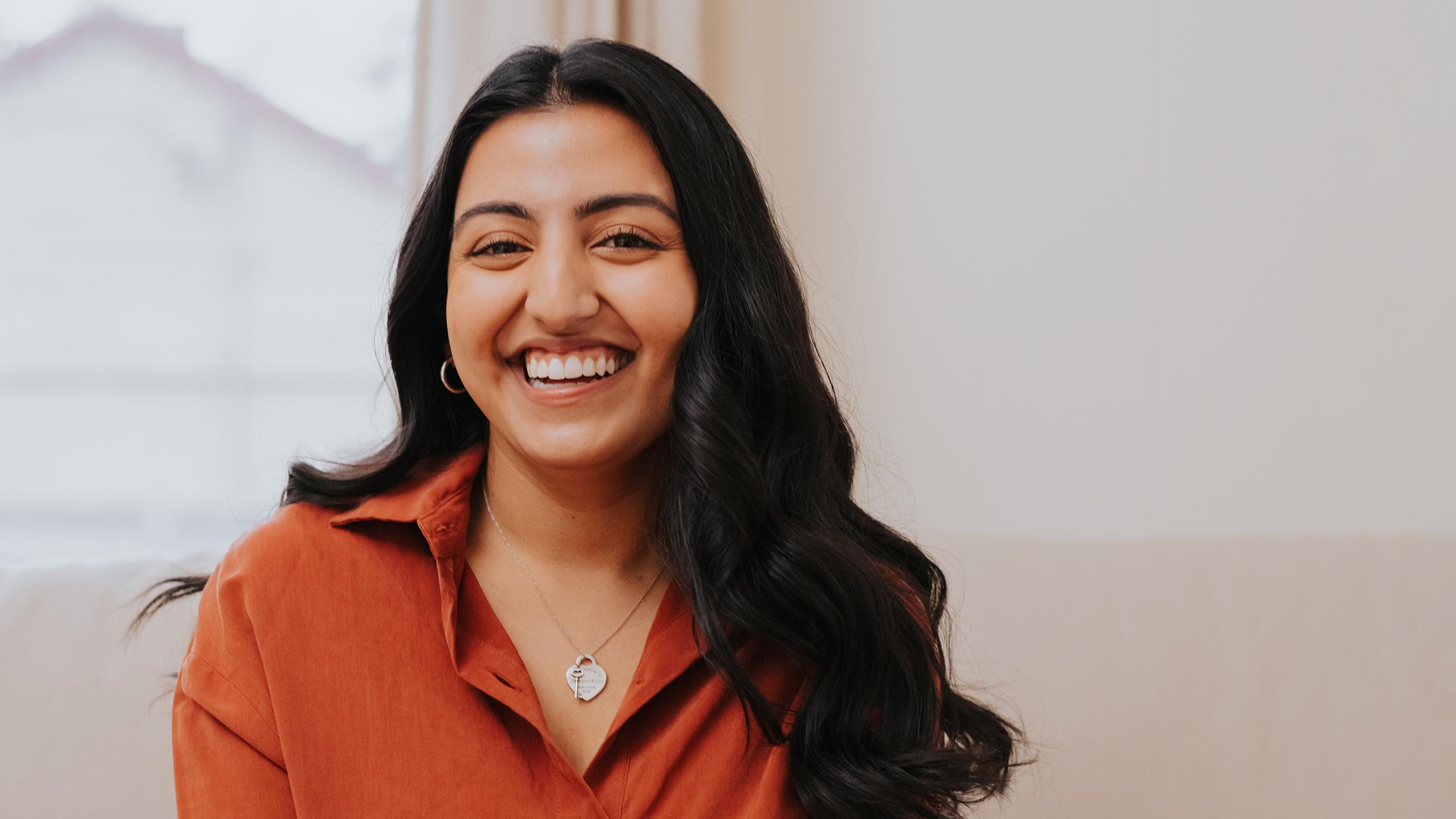By Pooja Rambaran
In April 2016, while in her second year of journalism at Ryerson, then 19-year-old Serena Lalani penned a blog post detailing her escape from an abusive relationship.
After years of sore muscles and bruises, jealousy, possessiveness and hateful words spat at her, Lalani recounted the night she finally decided to leave.
“I kept waiting for signs that I should walk away from the relationship,” wrote Lalani. “The truth is, I was given hundreds of warnings but I still continued to contemplate my options until I was hurt so badly that I had no choice but to get outside help.”
Since this post, she’s received hundreds of messages from other survivors who resonated with her story and who were, and may still be, experiencing violence.
“Sharing and talking about domestic violence, for me, was a way to really open up these conversations without there being judgment so that other people feel a lot less alone,” said Lalani. “I know when I was going through it, I wish I had heard from other people that [I wasn’t] alone in those experiences.”
In 2021, on the fifth anniversary of leaving her relationship, Lalani decided to continue the conversation by starting the process of filming, producing and directing a documentary about her experience—an idea she’d been sitting on for years.
Her upcoming documentary, This Is My Proof, reflects on Lalani’s journey of healing and building a new life post-trauma and distancing herself from her faith-based community.

While she shared her story several times through national TV interviews, podcasts, panels and articles, Lalani said this documentary was an opportunity to reflect more deeply on the aftermath of speaking up about her experience.
“From when I had first shared my blog posts, I knew that bringing awareness towards domestic violence and intimate partner violence was an important part of the impact I wanted to make on the world,” she said.
“It got to a point where I knew I wanted to do more than just a few interviews here and there. I wanted to make this impact larger, widen up this conversation and introduce a new medium into the mix, and that’s how the documentary started to flourish,” Lalani added.
The film is currently focused on Lalani’s shift from Toronto to Montreal, away from the city where she faced a lot of her trauma.
Along with co-producer and director Jenny Jay, she launched a crowdfunding campaign in June 2021 to help finance the production of the documentary. Of their $20,000 dream goal, they have so far raised over $16,000.
The following July, they were both invited to be a part of “She Is Your Neighbour,” a campaign created by the Women’s Crisis Services of Waterloo, to continue bringing awareness to the complexities of domestic violence and shed light on how it impacts South Asian communities. The duo were featured as guests on their podcast and were presented on bus ads throughout the city.
“That was a very full circle moment for me, from writing the blog post five years ago to now being on bus ads,” Lalani said. “There was a time when I was so scared and petrified to use my voice and now to see something in that type of public space was a huge moment for the documentary.”
As a Muslim woman within the South Asian community, reflecting on and navigating through the judgement she received from community members is an important aspect of her story that Lalani wants to show in the film.
“The night that I had left my relationship, my life was on the line and that’s something I don’t take lightly because it changed me forever,” said Lalani in the “She Is Your Neighbour” podcast. “But explaining that to my community, I don’t think it resonated with a lot of people because I heard [comments like] ‘she’s exaggerating’ or ‘we all go through this’ or ‘how bad was it really?’”
“ …I knew that bringing awareness towards domestic violence and intimate partner violence was an important part of the impact I wanted to make on the world“
In South Asian communities, where importance is placed on collectivism, maintaining a strong family unit and avoiding negative public perception, community members are often discouraged from reporting cases of domestic violence. For domestic abuse survivors, coming forward with their truth, like Lalani did, may mean being abandoned or isolated from their families.
Lalani added that within the South Asian community, there is a lot of pride and a belief that “this is just the way it is and this is just what you do” in relationships. Refusing to be silent about her experience was a rare instance that she attributes to the generational divide.
“It’s difficult to bridge that gap and explain, even within my own family–to my elders [and] my parents–why I did what I did,” said Lalani in the podcast.
Lalani plans on submitting the documentary once it’s completed to film festivals around the world to reach a wider audience. She hopes to use it as a domestic violence education resource and to provide an understanding of what it’s like to experience intimate-partner violence as a marginalized person.
“[Since] I posted my 2016 blog post, there was a huge [number] of South Asian women who were messaging me because they felt the pressure and stigma in our community [regarding domestic violence],” she said. “That’s always been something that stuck with me that I wanted to really address and try to change.”
The documentary does not yet have a set release date and filming is ongoing, according to Lalani. “I learned that putting an end date right off the bat seems a bit arbitrary and won’t be the best way that this film is made because the whole film is really about healing and creating these safe spaces.”
In addition to working on the documentary, Lalani freelances and works primarily with Black, Indigenous and racialized entrepreneurs to help bring out their voices online through their websites and social media presence, by offering assistance in website copy, blog posts and photography.
“I’m really just trying to lead with impact in every area that I’m working on, whether that’s the documentary or with my freelance clients.”













Leave a Reply